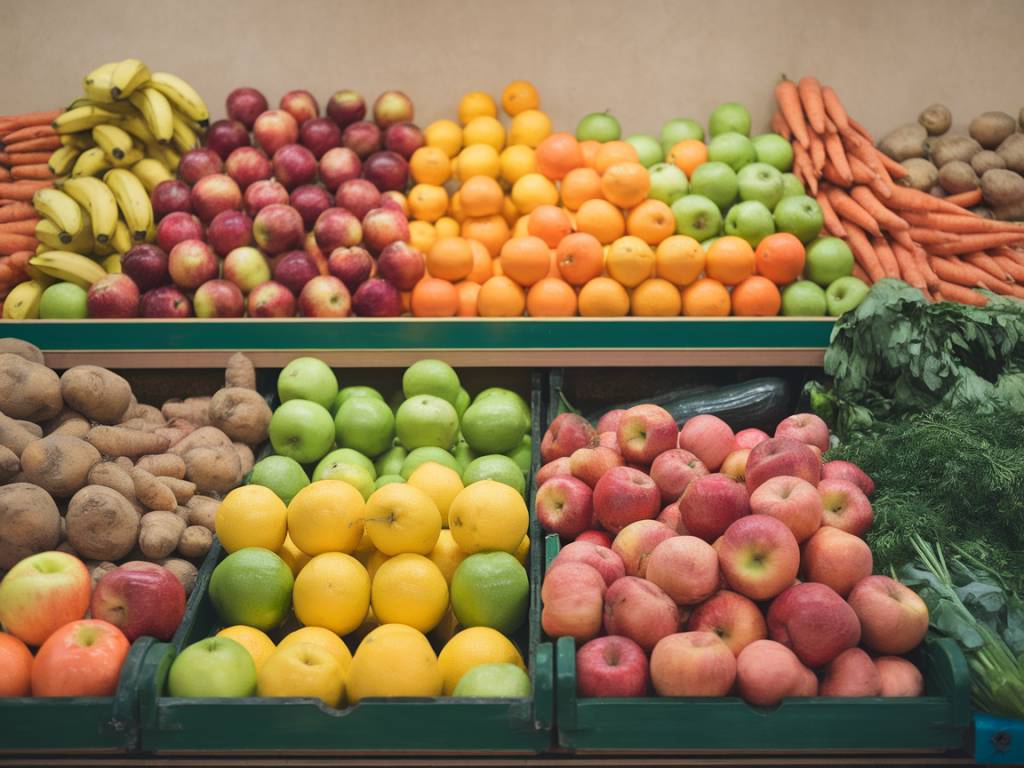Eating healthy often carries the misconception that it comes with a hefty price tag. However, it is entirely possible to maintain a nutritious diet without breaking the bank. Let’s explore practical strategies that can help you eat well on a budget, proving that healthy eating doesn’t have to be expensive.
Plan Your Meals Like a Pro
Planning is the key to success when it comes to eating healthy on a budget. Start by setting aside some time each week to plan your meals. Consider what ingredients you already have and what meals you enjoy. Make a shopping list based on what you need, and stick to it. This avoids impulse buying and helps you focus on essentials.
Here’s a tip: focus your meals around versatile ingredients like rice, beans, and vegetables, which can be used in various recipes throughout the week. You’ll soon find that sticking to a plan not only saves money but also reduces food waste.
Embrace the Power of Seasonal and Local Produce
Buying fruits and vegetables in season can significantly reduce costs. Seasonal produce is usually fresher, more nutritious, and requires less transport, lowering its price. Visit local farmers’ markets for the best deals and to support local agriculture. You might even discover a new favorite fruit or vegetable!
Another aspect to consider is frozen produce, which is often less expensive and can be just as nutritious. Frozen vegetables and fruits are picked at peak ripeness and preserved to retain their nutrients, making them a budget-friendly and healthy choice.
Go for Bulk: The Secret of Smart Shopping
Purchasing items like grains, nuts, and seeds in bulk can drastically cut costs. These foods have a long shelf life, making them perfect for stocking up. They are also versatile and packed with essential nutrients. Imagine creating delicious oatmeal in the morning or adding crunchy nuts to your salads in the evening—all without repeated trips to the store!
Don’t overlook generic or store brands, which are often cheaper yet comparable in quality to name brands. By choosing wisely, you can maintain a well-stocked pantry without spending a fortune.
Protein Choices that Won’t Empty Your Wallet
Protein is a crucial part of any diet, but it doesn’t need to be expensive. Opt for plant-based proteins like lentils, beans, tofu, and chickpeas, which are budget-friendly and versatile. These foods can be used in a variety of dishes, from hearty stews to vibrant salads.
If you prefer meat, consider less expensive cuts or poultry and fish on sale. Learning to cook with these options can open up a world of affordable and delicious meals. Rotisserie chicken, for example, can be a quick and budget-friendly meal option that can be repurposed in different dishes throughout the week.
Prep Like a Chef: Batch Cooking and Leftovers
Batch cooking is a lifesaver for those looking to save time and money. By preparing larger quantities of meals and freezing portions, you’ll always have something nutritious on hand—perfect for busy days when you’re tempted by takeout. Plus, you’ll save on cooking energy and reduce stress at meal times.
Embrace leftovers as well. When planned correctly, yesterday’s dinner can transform into today’s lunch, providing variety without additional cost. Get creative by turning roasted vegetables into a savory soup or mixing up a delightful stir-fry with leftover grains and proteins.
Avoid Processed and Pre-Packaged Foods
While convenient, pre-packaged and processed foods often come at a higher cost both financially and nutritionally. These items are usually more expensive and loaded with unhealthy fats, sugars, and salt. Instead, prepare meals from scratch to control what goes into your body and wallet.
Start small by cooking one or two homemade meals a week and gradually increase as you feel more comfortable. You might just find that the ritual of cooking becomes a pleasurable part of your routine.
The Hidden Savings of a Plant-Based Diet
Shifting towards a plant-based diet can naturally reduce costs. Fruits, vegetables, legumes, and whole grains typically cost less per serving than meat and dairy. Moreover, a plant-based diet is packed with nutrients and can benefit your health in various ways, including reducing the risk of chronic diseases.
Try weaving more plant-based meals into your weekly plan. Consider dishes like vegetable curries, hearty salads, or grain bowls that are fulfilling and easy on the wallet.
Getting Creative in the Kitchen
Eating healthy on a budget is an invitation to get creative in the kitchen. Ever thought about making your own yogurt or bread? These activities are not only cost-effective but can also bring immense satisfaction and joy. Plus, they allow you to control ingredients and experiment with flavors.
Cooking with friends or family can also be a fun, collaborative way to share costs and try new recipes. Not to mention, turning cooking into a shared experience can make healthy eating more enjoyable for all involved.
By applying these strategies, eating healthy on a budget is not just a possibility—it’s an achievable goal. With a little planning and creativity, you can enjoy nourishing meals that delight your taste buds and your wallet. After all, the essence of eating clean and delicious lies in simplicity and thoughtful choices.
